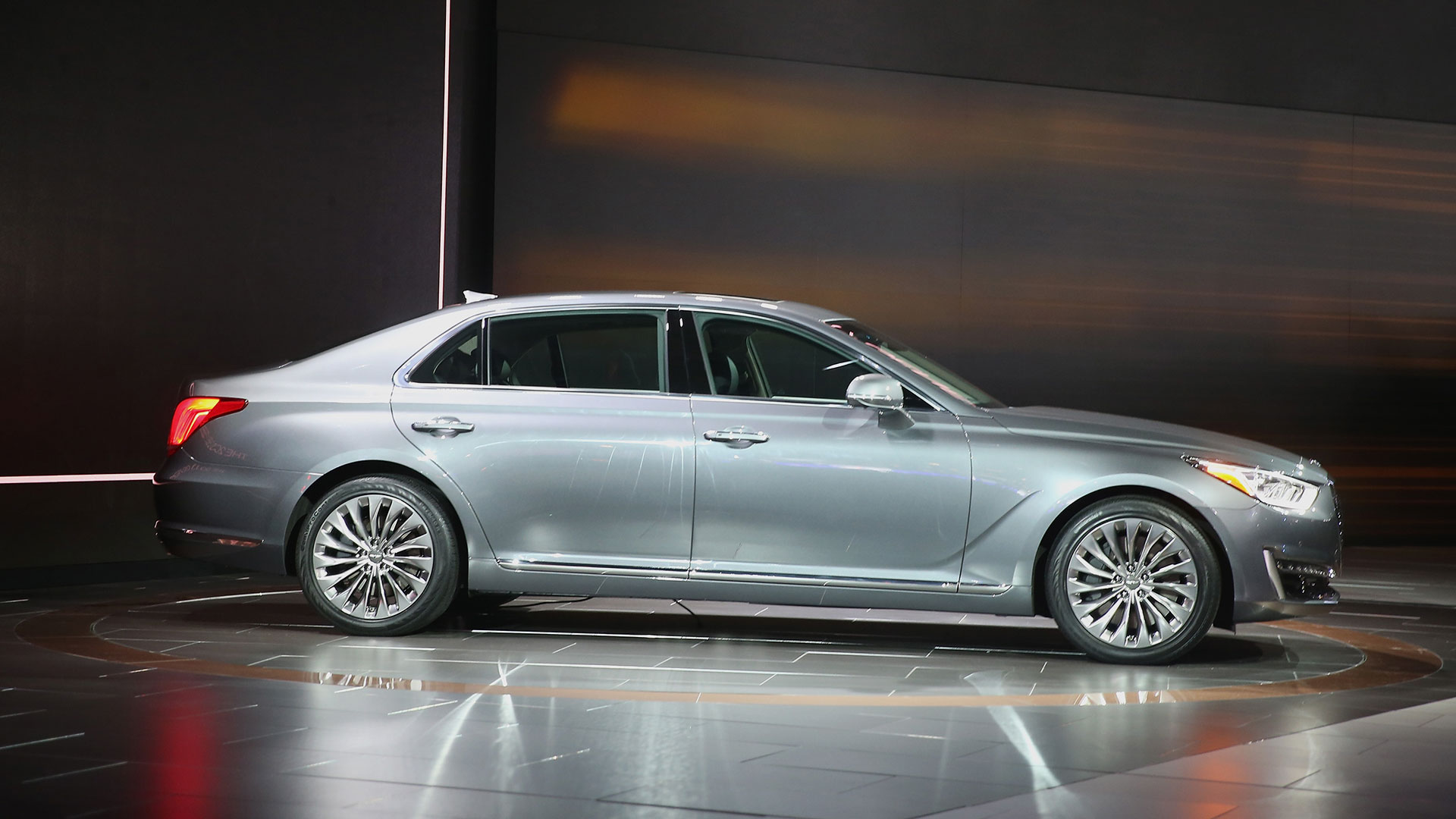

Bets, anyone, on how long it will take Hyundai’s new Genesis luxury brand to outsell Lincoln?
Lincoln’s production Continental sedan, unveiled at Detroit’s auto show, may represent the cavalry riding to a modest brand rescue. But Hyundai unveiled an entire Genesis luxury division to be spun off from the famously value-oriented brand. And considering how South Korea’s Hyundai, and its sister brand Kia, have chewed up and spit out the likes of Volkswagen in American sales, a luxury division that once would have seemed a joke now has the ring of potential success—not least for a customer-obsessed approach that includes picking up and dropping off your Genesis from home for dealer service.
The Genesis name was first scrawled upon an affordable yet mediocre sedan that nevertheless brought Hyundai attention and dawning respect. On stage on Jan. 11 in Detroit, Hyundai showed its Genesis G80, a rebadged version of the second-generation Genesis whose dramatically improved looks, optional V8 power and Lotus-tuned performance were a revelation to nearly everyone who drove it—and which put some costlier rivals like the Acura RLX to shame.
The really new car is the 2017 G90, the successor to the Hyundai Equus and a car known as the EQ900 in Asian markets. The first-generation Equus was a generic, self-conscious clone of the Lexus LS460 that, nevertheless, gave Hyundai an affordable alternative to the incumbent luxury barges. This summer, the G90 looks to carve out a respectable niche against the Mercedes S-Class, BMW 7 Series, Audi A8, Jaguar XJ or the new Cadillac CT6. And it’s certainly large, at just under 205 inches in length – though its 37.8 inches of rear legroom stands well shy of the 40-plus in competitors like the BMW or Mercedes.

The G90 is as upright as a church rector and, at first glance, roughly as old-fashioned, with scattered cues from the polarizing Vision G concept shown here last year. Buyers can choose a 365-horsepower, 3.3-liter twin-turbo V6, or the robust 5-liter Tau V8 with 420 horses. It’s all freighted with luxury, from glossy wood and a 22-way power driver’s seat to the latest in safety, including automated braking.
That flagship sedan aside, Hyundai spokesman Jim Trainor said the Genesis lineup will grow to six models by 2021. Those will include a BMW 3 Series fighter in the G70 sport sedan, a pair of crossover SUVs and likely a sport coupe to replace the Hyundai Genesis coupe. Any coupe, Trainor suggested, would be a more sophisticated luxury model, rather than the Mitsubishi-slash-Mustang-baiting curio that the current Genesis is.

And Hyundai continues to snap up major European talent to shore up one-time weak areas in driving dynamics and exterior and interior design. Acclaimed former Audi stylist Peter Schreyer has worked magic with both Kia and now Hyundai designs. Belgian Luc Donckerwolke, whose 23-year career at Volkswagen Group saw him lead design at Bentley, Lamborghini and Seat, heads up the design direction for the Genesis brand. And the company poached Albert Biermann, the former engineering chief of BMW’s storied M division, to weave performance magic for Genesis with the next letter of the alphabet: “N,” for Hyundai’s Namyang R&D center in Korea.
It’s heady stuff for Hyundai. And just as Toyota’s Lexus once seemed a long shot before rising to American prominence and dominance, the likes of Lincoln, Acura, Buick, Volvo and Infiniti would be wise not to take this new chapter of Genesis lightly.